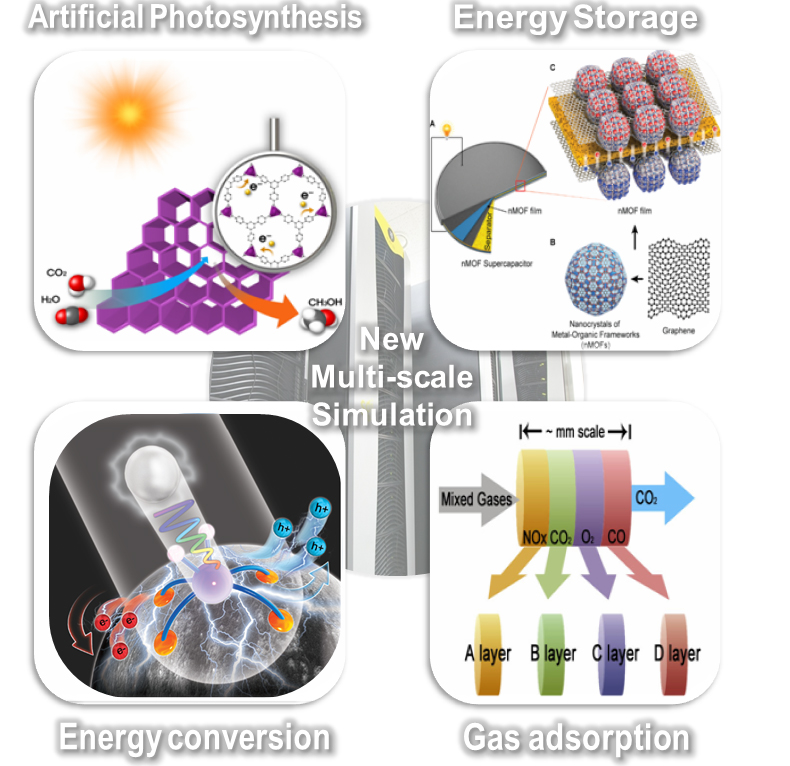
Research
Home > Research > ResearchDesigning new materials and optimizing its process based on quantum mechanics, molecular dynamics and statistical mechanics is called Ў®First-principle DesignЎұ. The development of new materials according to First-principle Design sounds unrealistic just a decade ago. But nowadays, as computational power rapidly increases, first-principle simulation became important aid of experiment and the only tool for observing unknown nano-scale phenomena. First-principle simulation gives us electron scale energy information, so we can predict and understand the atomic scale reaction. Furthermore we can reveal physical, chemical reaction mechanisms that are hard to find out by classical methods. Also we can save time and expense for developing new material by using first-principle simulation before experiment.
With an aid of multi-scale first-principle simulation, now we are interested in developing nanomaterials for energy conversion and storage systems covering artificial photosynthesis (CO2 conversion, water splitting), batteries, super-capacitors, solar cells, and gas (H2, CO2) adsorption.














